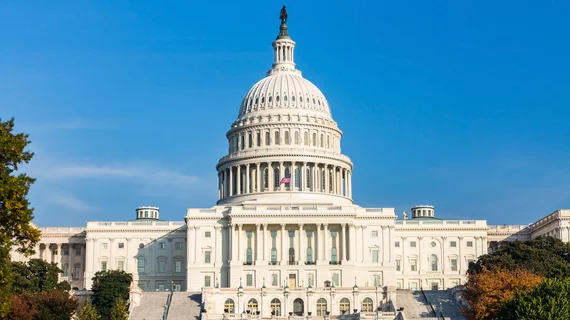Does hospital consolidation raise Medicare prices? Lawmakers want to know
The healthcare space is in the midst of rapid consolidation, blurring the line between providers and payers. As hospital entities continue to grow larger through mergers and acquisitions, lawmakers want to know what impact such consolidation has on the Medicare program and beneficiaries.
Three members of the Congressional Energy & Commerce Committee–Michael Burgess, MD, R-TX, Greg Walden, R-OR, and Greg Harper, R-MS–sent a letter to the Medicare Payment Advisory Commission (MedPAC) asking for research on the impact of consolidation for increasing costs to the Medicare program and beneficiaries, including prescription drug costs.
The number of vertically consolidated hospitals increased by 21 percent from 2007 through 2012, the letter reads, citing figures from the Government Accountability Office (GAO).
2017 was a record year for healthcare M&A, with 115 hospital and health system transactions, according to a report from Kaufman Hall. And 2018 could see even more deals.
The hospital industry also has the most horizontal merger litigation pending at the Federal Trade Commission (FTC), according to the letter, with estimates that one in five hospitals will be realigned over the next decade.
“Consolidation in the hospital industry certainly appears to be part of a larger trend of consolidation in the healthcare market more generally,” the letter reads. “Hospitals play a significant role in the healthcare market and are thus likely to have a role influencing healthcare costs, particularly as it relates to the Medicare program.”
Hospitals are a major area of cost for Medicare, with $197.9 billion in spending in fiscal year 2017. As more hospitals consolidate and grow into larger entities, the impact on cost has been conflicting in recent studies, the letter alleges.
A study from the American Hospital Association in 2017 found that hospital consolidation can lead to great efficiencies, including lower cost and better quality care. Another study cited by the committee suggested consolidation can reduce costs 15 percent to 30 percent. Still, other studies find that costs generally rise under consolidation.
MedPAC’s June 2017 report to Congress noted that horizontal consolidation can increase commercial prices and lead to higher Medicare prices.
The committee also wants MedPAC to analyze whether hospital consolidation has led to higher drug prices and if higher drug prices have led to more consolidation. The committee asked that MedPAC, which is tasked with advising Congress on the Medicare program, respond within 30 days of its August 30 letter.
The committee is not the only group wanting more information on healthcare consolidation. In light of ongoing mega-mergers–CVS Health’s $69 billion merger with Aetna and Cigna’s $67 billion purchase of Express Scripts–Senator Chuck Grassley, R-Iowa, asked the Department of Justice to increase scrutiny over significant healthcare deals.

